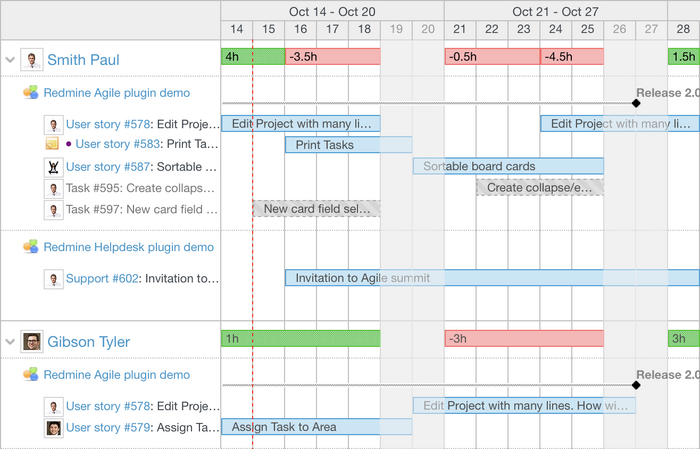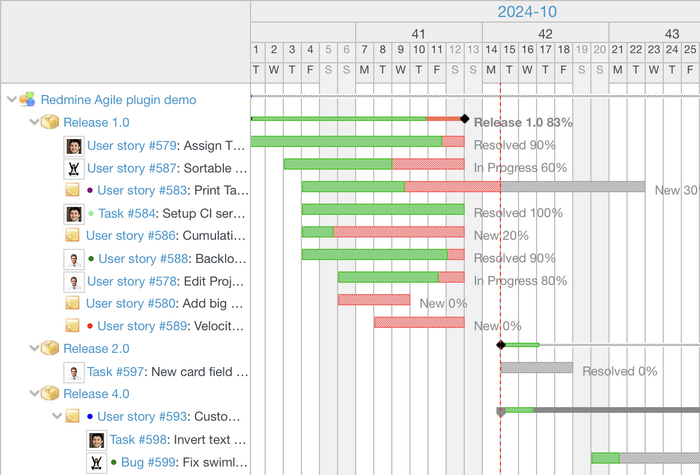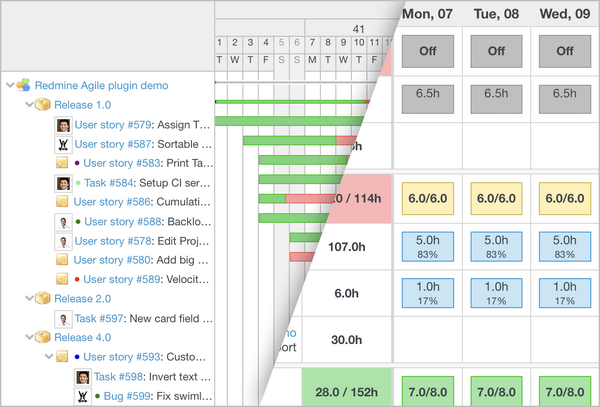In resource management, particularly in project operations, understanding the difference between bookings and assignments is crucial for efficient resource planning.
Both terms are often used interchangeably, but they serve different purposes and have distinct impacts on project execution. This article provides an overview of how bookings differ from assignments, drawing on key concepts from project management tools like Microsoft Project and Redmine.
.
What Are Bookings?
Bookings are used to reserve a resource’s availability for a specific period of time without necessarily assigning them to specific tasks or deliverables. Bookings focus on time management and resource allocation at a higher level, allowing you to ensure a person or team is available when needed, even if the exact details of their tasks aren’t finalized yet.

Key Features of Bookings:
- Resource Availability: The primary function of bookings is to secure a resource's availability. This helps ensure that the resource won’t be scheduled elsewhere during the reserved time.
- Flexibility: Bookings can be modified or canceled easily as project needs evolve. Since they don’t tie resources to specific work, they provide flexibility in scheduling and adjusting workloads.
- Capacity Planning: Bookings are helpful for long-term capacity planning, ensuring that resources are reserved well in advance for future projects or key time periods.
Example of a Booking:
Suppose you are managing a website redesign project. You book 40 hours of your designer’s time over the next two weeks to ensure they will be available when the project starts, even if specific tasks haven’t been assigned yet.
What Are Assignments?
Assignments are more task-specific and tie resources directly to particular deliverables or responsibilities within a project. Unlike bookings, which focus on availability, assignments focus on actual work. When you assign a resource, you are indicating exactly what that person will be working on during the allocated time.

Key Features of Assignments:
- Task Specificity: Assignments are made once the scope of work is clear. You know exactly what needs to be done and can tie resources directly to those tasks or project components.
- Deliverable-Oriented: Assignments ensure that the resource is actively working on producing a deliverable, whether it’s completing a specific task, phase, or milestone of the project.
- Monitoring and Reporting: Since assignments link directly to tasks, they are often tracked more closely in terms of progress, completion, and performance metrics.
Example of an Assignment:
In the same website redesign project, you assign your designer to create the homepage layout within the first week and complete the mobile-responsive design by the second week. Now, the resource is tied to specific tasks and deliverables within the booked time.
Bookings vs. Assignments: Key Differences
| Aspect | Bookings | Assignments |
|---|---|---|
| Focus | Securing availability | Specific tasks and deliverables |
| Timing | Planned in advance without task details | Made when tasks and scope are defined |
| Flexibility | Highly flexible, easy to adjust | Less flexible once assigned, task-based focus |
| Capacity Planning | Ideal for long-term planning and availability | Tied to specific project tasks |
| Tracking and Reporting | General overview of resource time allocation | Detailed tracking of task progress and output |
When to Use Bookings
- Capacity Planning: Use bookings when you need to ensure resource availability for future tasks or projects. For example, when planning a high-priority project months in advance, you may book key team members’ time to ensure they are available when the project begins.
- Uncertain or Evolving Tasks: If the exact details of the work aren’t finalized but you need to make sure a resource is reserved, bookings are more appropriate. This flexibility allows for adjustments as project details become clearer.
When to Use Assignments
- Task-Oriented Work: Assignments should be used when specific deliverables are defined and resources need to be tied directly to tasks. For example, once the project scope and timeline are established, you would assign team members to specific tasks to ensure deadlines are met.
- Monitoring Resource Performance: Assignments provide better insights into productivity, as you can track progress on specific tasks and generate reports on performance.
Best Practices for Managing Bookings and Assignments
- Use Bookings for High-Level Planning: When projects are in the early planning stages, rely on bookings to reserve key resources without needing to define specific tasks right away.
- Convert Bookings to Assignments as Details Emerge: As project plans evolve and tasks are defined, convert bookings into specific assignments to ensure resources are focused on deliverables.
- Monitor Utilization: Use both bookings and assignments to monitor resource utilization. Bookings give you insight into overall availability, while assignments show how effectively resources are working on specific tasks.
- Balance Flexibility and Structure: Bookings provide flexibility, while assignments give structure. Finding the right balance between the two ensures resources are neither underutilized nor overburdened.

Conclusion
Effectively managing bookings and assignments is essential for successful resource allocation in project management. Bookings help with planning and ensuring availability, while assignments focus on task-specific work and deliverables. By understanding the difference and knowing when to use each, project managers can optimize resource utilization and improve project outcomes.


